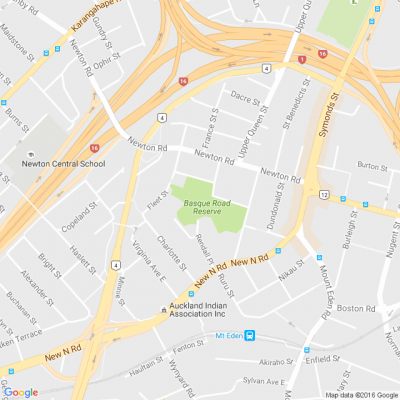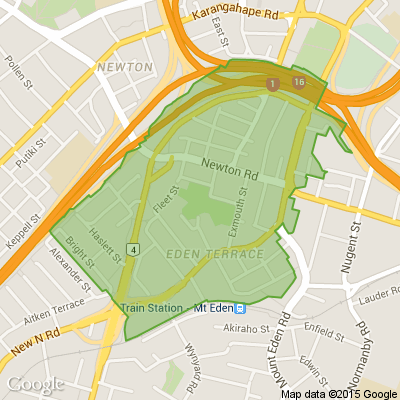The Wild Workplace: Navigating the Management Zoo - Day 23
In the bustling offices of Te Ao Solutions, the team was tasked with launching a groundbreaking product. The journey was set to be one of collaboration and creativity, but the workplace was teeming with personalities straight out of a management zoo. Each animal's behavior became a roadblock, threatening the project’s success. The HIPPO Hiria, the CEO, always had the final say. Her Highest Paid Person's Opinion (HIPPO) dominated every meeting. "My instincts say this is the best way," she declared, overriding the carefully researched proposals of her team. Her voice silenced dissent, stalling innovation.
The ZEBRA
Zane, the marketing lead, was Zero Evidence But Really Arrogant (ZEBRA). He strutted around confidently proposing unproven strategies. “We need a viral campaign! Everyone's doing it,” he insisted, ignoring the data that suggested a different approach.
The WOLF
Wai, the project manager, was always on The Latest Fire Working (WOLF). She spent her days chasing crises rather than focusing on the broader project plan. “No time for meetings — we need to fix this bug now! she’d bark, leaving her team scrambling.
The RHINO
Rewi, a senior board member, was Really Here In Name Only (RHINO). Despite his title, he was detached from the project, offering little guidance. “Just let me know when it’s done,” he said, vanishing after every meeting.
The SEAGULL
Sara, the Senior Executive, fit the Seagull archetype perfectly. She glided into meetings unannounced, loudly criticized the team's progress, and then left as abruptly as she came. “Why is this taking so long? Just figure it out!” she squawked before flying off.
The MOUSE
Moana, a junior analyst, had Muddled Opinions, Usually Swayed Easily (MOUSE). In every meeting, she hesitated to voice her thoughts. “I’m not sure,” she often said, changing her stance based on whoever spoke last.
The PARROT
Pete, an intern, was a Pretty Annoying and Ridiculously Repeating Others (PARROT). He echoed every idea shared in meetings without adding any value. “Yes, just like what Hiria said earlier!” he’d chirp repeatedly.
The DONKEY
Dylan, the data specialist, was Data Only, No Knowledge or Expertise (DONKEY). He brought endless spreadsheets to meetings but couldn’t explain what the numbers meant. “I just pull the data,” he’d shrug when asked for insights.
The Turning Point
The project seemed doomed until a new manager, Tia, joined the team. She observed the zoo-like dynamics and decided to bring order. Tia called for a hui (gathering), where she gently but firmly addressed each personality.
-- To Hiria the HIPPO, she said, “Your voice matters, but let’s ensure everyone feels heard.”
-- To Zane the ZEBRA, she advised, “Let’s base our strategies on evidence rather than instinct.”
-- To Wai the WOLF, she suggested, “We need a clear plan to avoid constant firefighting.”
-- To Rewi the RHINO, she said, “Your involvement is crucial for guidance and support.”
-- To Sara the SEAGULL, she remarked, “Your input is valuable, but we need consistency.”
-- To Moana the MOUSE, she encouraged, “Your insights matter—trust your voice.”
-- To Pete the PARROT, she guided, “Contribute original ideas, not just echoes.”
-- To Dylan the DONKEY, she coached, “Turn data into actionable insights for the team.”
Under Tia’s leadership, the team transformed. By recognising and addressing these animalistic tendencies, they began to collaborate harmoniously, leveraging each other’s strengths and working toward a shared goal.
Moral of the Story
In any workplace, recognising and addressing unproductive behaviours is essential. Harmony is achieved when each individual contributes authentically, respects others, and aligns with the common purpose.
Chapter Book and Tea Shop Jan-Feb 2026 Book Catalogue
📚 JAN-FEB 2026 BOOK CATALOGUE 📚
Welcome back and best wishes for 2026! The new year sees the arrival of lots of goodies including Ilona Andrews’ BEAST BUSINESS (Hidden Legacy Series—Novella), Mary Balogh’s REMEMBER THAT DAY (Ravenswood Series), Christine Feehan’s DARK JOY (Dark Carpathian Series), Jayne Ann Krentz’s THE SHOP ON HIDDEN LANE (Set in Fogg Lake), Lauren Palphreyman’s THE NIGHT PRINCE (Wolf King Series), Leigh Rivers’ INSATIABLE (Edge of Darkness Series), J.D. Robb’s STOLEN IN DEATH (In Death Series), Nalini Singh’s SUCH A PERFECT FAMILY and more. Enjoy your reading!
NB. We have temporarily sold out of Mary Balogh’s “REMEMBER THAT DAY” and we expect it to be back in stock in around two weeks’ time.
Check out the catalogue at
chapter.co.nz...
Please see p.2 for the:
• Order link for signed copies of Nalini Singh’s SUCH A PERFECT FAMILY
• Pre-order link for signed copies of Nalini Singh’s ARCHANGEL’S ETERNITY
• Details of the Romance Writers of New Zealand Short Story Contest sponsored by Chapter (in April 2026).
• Details of the Auckland Romance Readers Book Club Monthly Meetings and Auckland Romance Readers Book Club Facebook Group.
For Orders, Enquiries or to check instore dates:
✉️ info@chapter.co.nz ☎️ 09-6232319 📱 021-635027
NB. Chapter’s trading hours are Tue–Sun 10–4. We are CLOSED on Mondays.
#ChapterBookandTeaShop #Tea #TeaShop #Books #Bookshop #RomanceBookshop #RomanceFictionSpecialist #BiMonthlyBookCatalogue

Poll: 🤖 What skills do you think give a CV the ultimate edge in a robot-filled workplace?
The Reserve Bank has shared some pretty blunt advice: there’s no such thing as a “safe” job anymore 🛟😑
Robots are stepping into repetitive roles in factories, plants and warehouses. AI is taking care of the admin tasks that once filled many mid-level office jobs.
We want to know: As the world evolves, what skills do you think give a CV the ultimate edge in a robot-filled workplace?
Want to read more? The Press has you covered!

-
52.7% Human-centred experience and communication
-
14.7% Critical thinking
-
29.6% Resilience and adaptability
-
2.9% Other - I will share below!
Brain Teaser of the Day 🧠✨ Can You Solve It? 🤔💬
Make a hearty dish. Take just half a minute. Add four parts of kestrel. Then just add one. What have you made?
(Trev from Silverdale kindly provided this head-scratcher ... thanks, Trev!)
Do you think you know the answer? Simply 'Like' this post and we'll post the answer in the comments below at 2pm on the day!
Want to stop seeing these in your newsfeed? No worries! Simply head here and click once on the Following button.







 Loading…
Loading…